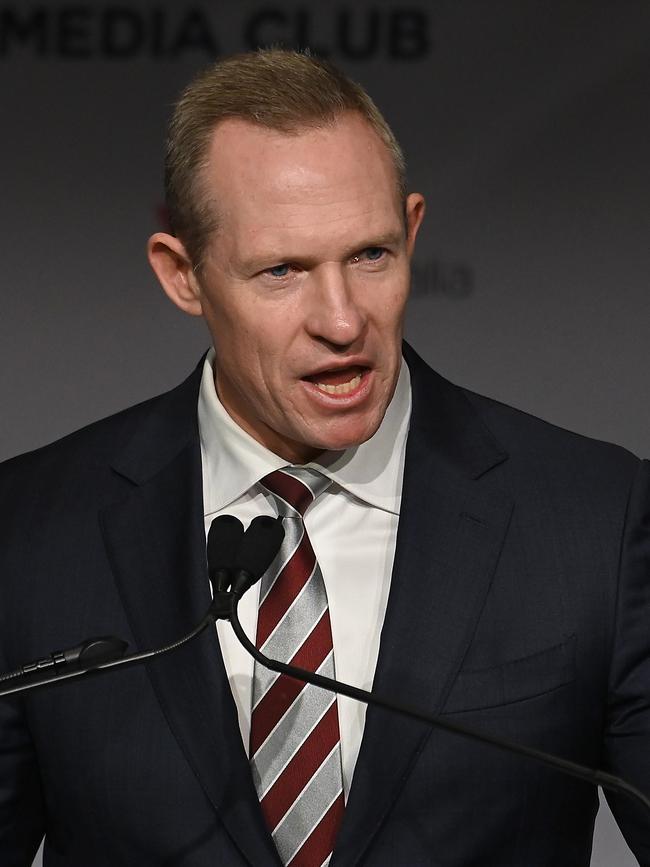Damning findings over Callide C power station explosion
A lack of funding for maintenance and safety risk programs has been blamed on the 2021 explosion and ongoing shutdown of one of Queensland’s largest state-owned power stations.

A lack of funding for maintenance and safety risk programs has been blamed on the 2021 explosion and shutdown of one of Queensland’s largest state-owned power stations, which has contributed to a rise in electricity prices.
The final reports by forensic engineer Sean Brady and consultants HartzEPM on Wednesday made damning findings into the operation and failure of the massive power station, Callide C, in central Queensland.
The explosion in May 2021 cut off power to 500,000 homes and, according to a subsequent report by the Queensland Competition Authority, led to a spike in wholesale electricity prices caused by the reduced supply.
Callide, which is operated and half-owned by the Queensland government’s CS Energy in a joint venture with Czech and Chinese investors, is now facing court action by the federal electricity regulator over its alleged failure to meet statutory obligations for maintenance work on the facility.
Energy Minister Mick de Brenni and Premier Steven Miles on Wednesday refused to say how much the repair bill had cost taxpayers or comment on CS Energy legal action with insurers seeking a payout.
It is understood that the insurers now intend to use the findings of both reports to oppose a payout for the repair bill and compensation from lost earnings from the generators.
In his report, Dr Brady said the cause of the explosion was the failure to source an adequate battery-charging system that was “fit for purpose”.
But Dr Brady said there was a backlog of maintenance at the facility and a failure to implement a system of “process safety practices” which could have identified the risks of a catastrophic incident. He said the lack of a safety system had been recognised in 2017 but that a pilot program developed to rectify the problem “lost key resources and funding” in the years leading up to the explosion.
Dr Brady said this occurred against a background of Palaszczuk government “shareholding ministers” driving cost savings.
“CS Energy has two significant structural influences: it is a government-owned corporation, and it shares ownership of Callide C power station,’’ he said in the report. “As a government-owned corporation, CS Energy is obliged to meet shareholder mandates, as well as meet agreed annual key performance indicators.
“In the years leading up to the incident, these mandates focused on cost savings, and performance indicators were dominated by financial and production metrics, as well as personal safety-related metrics.
“Shared ownership of Callide C power station led to increased complexity in its management, including competing asset investment priorities.’’
Last week, it was announced that the planned July recommissioning of Callide C had again been delayed until the end of August. The ongoing shutdown from the explosion has been blamed on the 2022 collapse of the cooling tower at Callide.

In its report, HartzEPM found CS Energy’s failure to properly maintain the cooling tower was a major factor in the collapse.
The report says CS Energy was warned in 2015 “limited funding for maintenance would develop into a ‘major constraint’ for the operation of the cooling tower”.
The report by engineer Ray Hartzenberg was delivered to CS Energy on April 16, but has not previously been released by the state-owned company.
The key factor in the collapse was the use of wooden structural supports in the cooling tower’s design, according to the report, which degraded over time due to high levels of chlorine in the water pumped through the tower to reduce the risk of an outbreak of Legionnaires’ disease.
But the final collapse in October 2022 had been preceded by a series of other failures of the structure dating back to January 2022, the report found, and substantial degradation within the tower had never been properly addressed by CS Energy as the operator.
At a press conference, Mr Miles said he welcomed the finalisation of the Brady report. “You all know how frustrated I’ve been for a long time with the delays of getting that report out and ultimately we had to force a draft report out,” he said.
Mr Miles said the government had taken “very significant steps” to address the concerns.






To join the conversation, please log in. Don't have an account? Register
Join the conversation, you are commenting as Logout